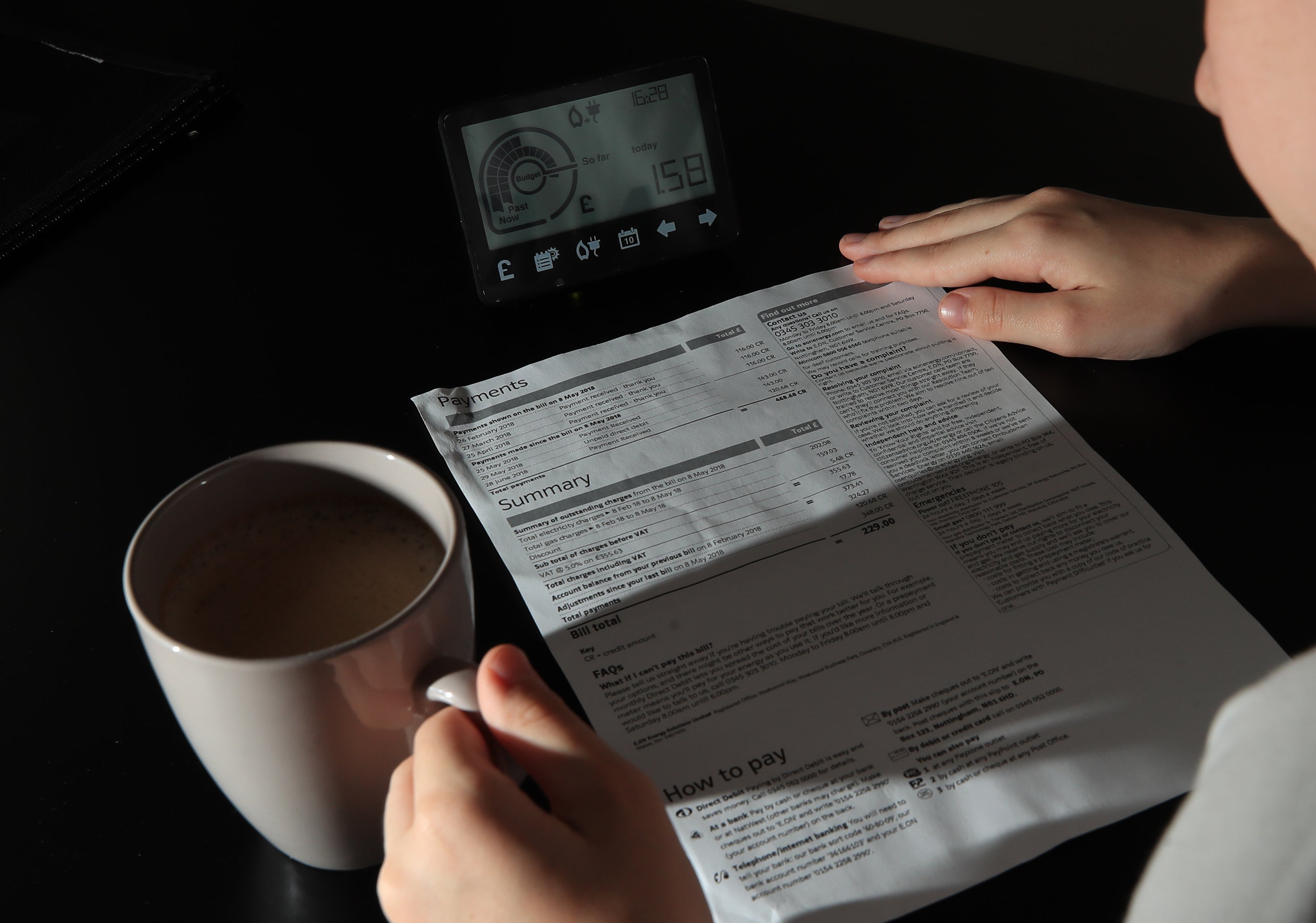Around 1.5m families will struggle to pay bills as UK set for recession – Niesr
The think tank predicts that more than 250,000 households will “slide into destitution” next year due to the cost-of-living crisis.

Your support helps us to tell the story
From reproductive rights to climate change to Big Tech, The Independent is on the ground when the story is developing. Whether it's investigating the financials of Elon Musk's pro-Trump PAC or producing our latest documentary, 'The A Word', which shines a light on the American women fighting for reproductive rights, we know how important it is to parse out the facts from the messaging.
At such a critical moment in US history, we need reporters on the ground. Your donation allows us to keep sending journalists to speak to both sides of the story.
The Independent is trusted by Americans across the entire political spectrum. And unlike many other quality news outlets, we choose not to lock Americans out of our reporting and analysis with paywalls. We believe quality journalism should be available to everyone, paid for by those who can afford it.
Your support makes all the difference.Around 1.5 million UK households will struggle to pay food and energy bills amid a deepening cost-of-living crisis that will plunge Britain into a recession, according to a leading think tank.
Soaring inflation compounded by the war in Ukraine will see many families hit with food and energy bills greater than their disposable income, the National Institute of Economic and Social Research (Niesr) estimates.
It has called for the Government to offer emergency support as it predicted that more than 250,000 households will “slide into destitution” next year, with the total number in extreme poverty to hit around one million unless urgent action is taken.
It also forecasts that the crisis will see the UK fall into a technical recession this year – as defined by two quarters in a row of declining gross domestic product (GDP) – with the economy set to contract in the third and fourth quarters.
The combination of shocks – Brexit, Covid-19 and the recent shocks to energy prices – is set to leave the incomes of people in the UK permanently lower
Niesr said Chancellor Rishi Sunak should hike Universal Credit payments by £25 per week and give a one-off £250 cash payout to the UK’s 11.3 million lower-income households.But Levelling Up Secretary Michael Gove has ruled out an emergency budget, insisting Boris Johnson’s suggestion of more help to ease the cost-of-living crisis was “over-interpreted”.
Niesr’s report predicts the Bank of England will have to raise interest rates to 2% by the end of 2022 and to 2.5% next year to try and curb soaring inflation.
It warned the Bank will have to “navigate carefully the treacherous waters caused by the tension between, on the one hand, allowing inflation expectations to de-anchor and, on the other hand, plunging the economy into a deep recession”.
The report comes after Bank governor Andrew Bailey last week raised the spectre of recession and warned inflation would peak at 10.25% later this year.
The Bank forecast the UK economy would contract in the fourth quarter of 2022 and fall overall in 2023 with “very weak” quarterly growth, although it said Britain would avoid a technical recession.
Niesr’s forecasts suggest inflation will peak at the lower level of 8.3%, although it echoed the Bank’s alerts over a sizeable hit to household incomes and a rise in unemployment as the cost crunch hits hard.
It predicts GDP will rise by 3.5% overall in 2022 despite the recession forecast, before rising by 0.8% in 2023 and 0.9% in 2024.
Niesr said: “The medium-term outlook for GDP growth is slow even by the standards of recent history, returning to 1.5% only in 2026.
“The combination of shocks – Brexit, Covid-19 and the recent shocks to energy prices – is set to leave the incomes of people in the UK permanently lower.”